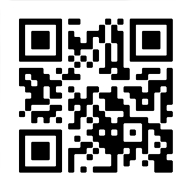Why Homophones Are Tricky for ESL Students: 30 Common English Homophones
If you’re an ESL (English as a Second Language) student, you’ve probably encountered homophones—words that sound the same but have different meanings and spellings. These words can be a real stumbling block on the path to English fluency. Homophones can lead to misunderstandings, especially in writing, where the difference between “there” and “their” or “to” and “too” can make or break the meaning of a sentence.
In this blog, we’ll explore why homophones are so challenging for ESL learners and provide 30 common homophones, along with examples to help you better understand and use them.
Why Are Homophones So Difficult for ESL Students?
Homophones are tricky for a few reasons:
- Same Pronunciation, Different Meaning: Homophones sound identical but have different meanings and often different spellings. This creates confusion, especially for ESL students who are trying to differentiate between words based solely on context.
- Lack of Visual Clues in Spoken English: When listening to someone speak, you can’t see the spelling of the words. This forces ESL learners to rely entirely on context to understand the meaning, which can be overwhelming when homophones are involved.
- Different Rules for Different Languages: In many languages, words that sound alike often have similar meanings or uses. However, in English, homophones can be completely unrelated, making it harder for ESL students to anticipate which word is correct.
- Spelling Irregularities: English spelling is notoriously inconsistent, and homophones only add to the confusion. For ESL students, it can be difficult to remember which word is spelled which way, especially when the sounds are identical.
But don’t worry! With practice, you can master homophones and avoid common mistakes. Let’s dive into 30 common homophones and their meanings, so you can see exactly how they’re used in context.
30 Common English Homophones with Examples
1. To / Too / Two
- To: Preposition (going toward something).
- Example: I’m going to the store.
- Too: Meaning “also” or “excessively.”
- Example: I ate too much pizza.
- Two: The number 2.
- Example: I have two dogs.
2. Their / There / They’re
- Their: Possessive (belonging to them).
- Example: This is their house.
- There: Refers to a place.
- Example: The keys are over there.
- They’re: Contraction of “they are.”
- Example: They’re going to the movies.
3. Your / You’re
- Your: Possessive (belonging to you).
- Example: Is this your book?
- You’re: Contraction of “you are.”
- Example: You’re going to love this movie.
4. Hear / Here
- Hear: To perceive sound.
- Example: Can you hear the music?
- Here: In this location.
- Example: I’ll meet you here at 5 PM.
5. Write / Right
- Write: To put words on paper.
- Example: Please write a letter to your friend.
- Right: Correct or the opposite of left.
- Example: You were right about the weather.
6. By / Buy / Bye
- By: Near or next to something.
- Example: The coffee shop is by the library.
- Buy: To purchase something.
- Example: I need to buy groceries.
- Bye: Short for “goodbye.”
- Example: I waved and said, “Bye!”
7. New / Knew
- New: Something that is recently made or acquired.
- Example: I got a new phone.
- Knew: Past tense of “know.”
- Example: I knew the answer to the question.
8. Which / Witch
- Which: Asking for one or more items from a set of choices.
- Example: Which color do you prefer?
- Witch: A person who practices magic, often depicted in stories.
- Example: The witch in the story cast a spell.
9. Weather / Whether
- Weather: The state of the atmosphere (rain, sunshine, etc.).
- Example: The weather today is perfect for a picnic.
- Whether: Used to express a choice or doubt between options.
- Example: I’m not sure whether to go to the party or stay home.
10. Accept / Except
- Accept: To receive something willingly.
- Example: I accept your apology.
- Except: Excluding or leaving out.
- Example: Everyone is invited except Tom.
11. Affect / Effect
- Affect: To influence something.
- Example: The weather can affect your mood.
- Effect: The result of a change or influence.
- Example: The effect of the storm was widespread damage.
12. Pair / Pear / Pare
- Pair: A set of two things.
- Example: I bought a new pair of shoes.
- Pear: A type of fruit.
- Example: I’m having a pear with lunch.
- Pare: To trim or reduce.
- Example: Please pare the pear by trimming the peel.
13. Peace / Piece
- Peace: A state of calm or tranquility.
- Example: After the conflict, there was finally peace.
- Piece: A part of something.
- Example: Can I have a piece of cake?
14. Plain / Plane
- Plain: Simple, without decoration.
- Example: I prefer plain black coffee.
- Plane: Short for airplane or a flat surface.
- Example: We’ll take a plane to New York tomorrow.
15. Sun / Son
- Sun: The star that provides light to Earth.
- Example: The sun sets in the west.
- Son: A male child.
- Example: My son is five years old.
16. Tail / Tale
- Tail: The back part of an animal.
- Example: The dog wagged its tail when it saw me.
- Tale: A story.
- Example: That was a fascinating tale of adventure.
17. Flower / Flour
- Flower: A plant’s blossom.
- Example: She planted a beautiful flower in her garden.
- Flour: A powder used in baking.
- Example: I need more flour to bake the cake.
18. Allowed / Aloud
- Allowed: Permitted.
- Example: We are not allowed to eat in the library.
- Aloud: Out loud, not silently.
- Example: Please read the passage aloud.
19. Close / Clothes
- Close: To shut something.
- Example: Please close the door when you leave.
- Clothes: Garments worn on the body.
- Example: I need to wash my clothes.
20. Mail / Male
- Mail: Letters or packages sent through a postal system.
- Example: Did you check the mail today?
- Male: Refers to a man or boy.
- Example: That male student is very tall.
21. Week / Weak
- Week: A period of seven days.
- Example: I’ll be on vacation for a week.
- Weak: Lacking strength.
- Example: I felt weak after the long hike.
22. Principle / Principal
- Principle: A fundamental rule or belief.
- Example: Honesty is a key principle in life.
- Principal: The head of a school or organization.
- Example: The principal gave a speech at the assembly.
23. Steal / Steel
- Steal: To take something without permission.
- Example: Don’t steal my idea!
- Steel: A strong metal alloy.
- Example: The building was made of steel and glass.
24. Stationary / Stationery
- Stationary: Not moving.
- Example: The car remained stationary at the stoplight.
- Stationery: Writing materials, such as paper and envelopes.
- Example: I bought new stationery for writing letters.
25. Vain / Vein
- Vain: Excessively proud of oneself or unsuccessful.
- Example: She is too vain about her appearance.
- Vein: Blood vessel in the body.
- Example: The nurse found the vein to draw blood.
26. Wait / Weight
- Wait: To stay in one place or expect something.
- Example: We had to wait for the bus for 20 minutes.
- Weight: How heavy something is.
- Example: He’s trying to lose weight by exercising.
27. Sight / Site / Cite
- Sight: The ability to see.
- Example: The sunset was a beautiful sight.
- Site: A place or location.
- Example: The construction site is downtown.
- Cite: A quote or reference of source material.
- Example: The research paper cited many medical studies.
28. Complement / Compliment
- Complement: Something that completes or enhances.
- Example: That scarf is a perfect complement to your outfit.
- Compliment: A nice thing you say about someone.
- Example: She gave me a compliment on my new haircut.
29. Foul / Fowl
- Foul: Unpleasant or against the rules (in sports).
- Example: The player committed a foul during the game.
- Fowl: A bird, typically one raised for food.
- Example: The farm had a variety of fowl, including chickens and ducks.
30. Die / Dye
- Die: To stop living.
- Example: The plant will die if it doesn’t get enough water.
- Dye: To change the color of something.
- Example: She plans to dye her hair purple.
Tips for ESL Students to Master Homophones
- Context Is Key: Since homophones sound the same, understanding the context of a sentence is crucial. Ask yourself: what makes sense in this situation?
- Practice with Writing: When you write, pay special attention to homophones. Use them in sentences to reinforce the correct meanings and spellings.
- Flashcards: Create flashcards with homophones and their meanings to help you remember which is which.
- Ask for Feedback: If you’re unsure whether you’re using the right word, ask a teacher or native speaker for feedback. Practice is the only way to get better!
Master English Homophones with Excel English Institute
Homophones can be a major stumbling block for ESL students, but with enough practice, you can master them. By learning the differences in meaning, spelling, and context, you’ll be able to navigate these tricky words confidently. Keep practicing, and soon enough, you’ll find that homophones are no longer a challenge!
If you’d like to master the English language, check out our English Programs and Session Calendar to see when the next session begins, and apply today!
FAQs
- Why are homophones difficult for ESL students?
- Homophones are challenging because they sound the same but have different meanings and spellings, which can lead to confusion.
- How can I remember the difference between homophones?
- Learning them in context, using flashcards, and practicing regularly will help you differentiate between them.
- Are homophones common in English?
- Yes, homophones are very common in English and are frequently used in both spoken and written language.
- Can homophones be used in the same sentence?
- Yes, it’s possible to use homophones in the same sentence, but it’s usually done for humorous or literary effect.














